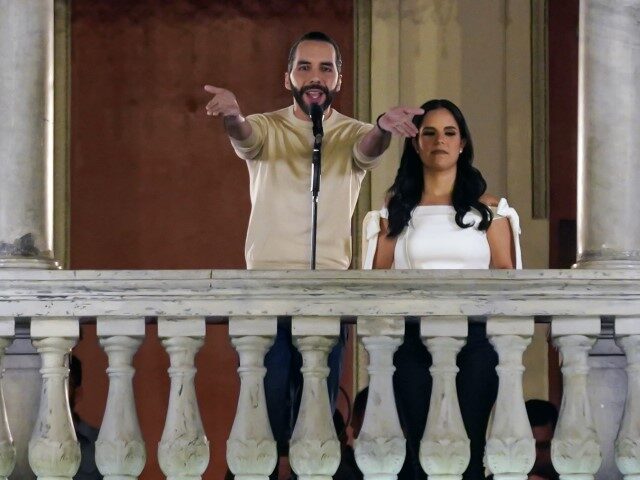The Biden administration has been cold and bullying toward El Salvador for years, but after President Nayib Bukele won reelection in a landslide on Sunday, the tone in Washington suddenly became more conciliatory.
Reuters noted on Tuesday that Biden’s team is now “cozying up” to Bukele, praising the health of democracy in El Salvador, and even publicly congratulating Bukele on his commanding 85-percent election victory.
For his part, Bukele has backed away from the confrontational stance he took when he felt the Biden administration was trying to push him around. At the nadir of the relationship two years ago, Bukele published a private chat with the top U.S. diplomat in El Salvador, who was angered enough by the revelation that she left the country.
Neither the Biden State Department nor Bukele has entirely abandoned their beefs with each other, however. Secretary of State Antony Blinken’s congratulations to Bukele on his reelection included a little jab about the fine work of “electoral observers” to keep the election clean and an even less veiled promise that the U.S. remains focused on “good governance, economic prosperity, fair trial guarantees, and human rights in El Salvador.”
Bukele is beloved in El Salvador, admired across the hemisphere, and yet viewed with deep suspicion by human rights groups because he turned his country from one of the most dangerous in Latin America to one of the safest, by throwing a considerable portion of the population in jail.
Bukele’s success could pose a stern philosophical challenge to Biden’s Democrat Party, which has convinced itself that throwing criminals in jail is not the right way to reduce crime. On the other hand, Reuters pointed out that Bukele’s successful law-and-order platform has clearly reduced migration to the United States, which has become a major political problem for Biden:
Salvadorans fleeing violence and poverty have migrated to the U.S. for decades, hitting record levels in 2021. Following the gang crackdown that began in March 2022, the number of Salvadorans reaching the U.S. southern border fell, dipping 36% from 2022 to 2023, according to U.S. Customs and Border Protection.
Bukele has also implemented measures such as hefty taxes on flights from 57 largely African countries to dampen onward U.S. migration.
Also, while El Salvador clearly wants to maintain good economic relations with the United States and keep hefty foreign aid checks coming, Bukele has made it known that he could turn to Beijing if Washington freezes him out. El Salvador has developed its own brand of Vietnam’s “bamboo diplomacy,” balancing the U.S. and China against each other, letting each other know that the other is a suitor waiting in the wings.
China’s congratulations to Bukele for winning reelection were much more effusive than Blinken’s dour salute. The Chinese have about $500 million in infrastructure projects cooking, and they helped to build a massive library in San Salvador last year. The opening ceremony included a fleet of drones creating the image of Bukele’s head in the sky:
“El Salvador wants to do trade with everyone. What we are not going to be is your lackeys,” Bukele said during his victory speech on Sunday. He wasn’t really talking to China.
Bukele also boasted that he won by the largest margin in the history of democracy, effectively turning El Salvador into a “one party” state – a pronouncement that will be far more warmly received in Beijing than in Washington.
The Chinese could argue that Bukele’s iron-hand style of government is much closer to their vision of disciplined, efficient authoritarianism than to the bloated and messy “democracy” of the United States. The U.S. could argue in return that Bukele did stand for election. While there is some grumbling about the accuracy of the vote tallies Bukele quoted in his victory speech – El Salvador’s electoral court ordered a recount on Tuesday – it seems clear that the vast majority of Salvadoran voters like the job he has done, and want him to do more of it.
The Biden administration is signaling that it would like Bukele to wrap up his War on Gangs by declaring victory and rounding up tattooed young males with slightly less enthusiasm, and perhaps a bit more due process.
Ironically, some of Bukele’s harshest critics warn that if he does lighten up, dormant drug gangs could come back with a vengeance, their numbers swelled by hardened soldiers who learned how to be even worse thugs while languishing in Bukele’s mega-prisons. El Salvador could offer some fascinating lessons in the tension between authority and democracy over the next few years.

COMMENTS
Please let us know if you're having issues with commenting.